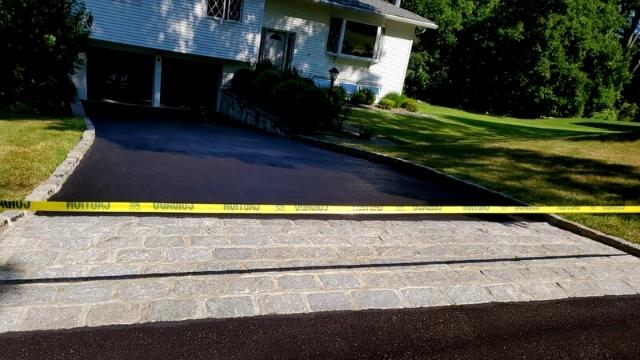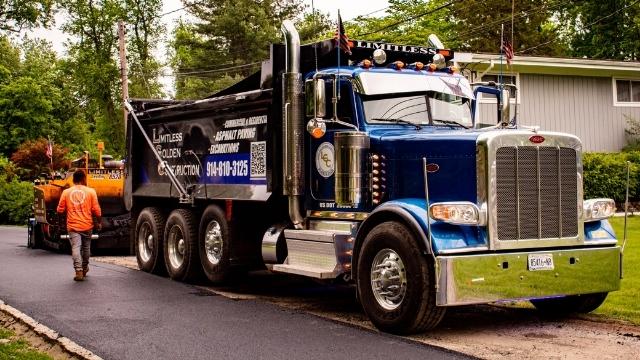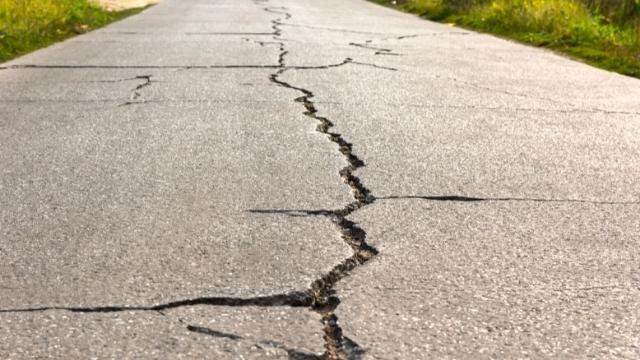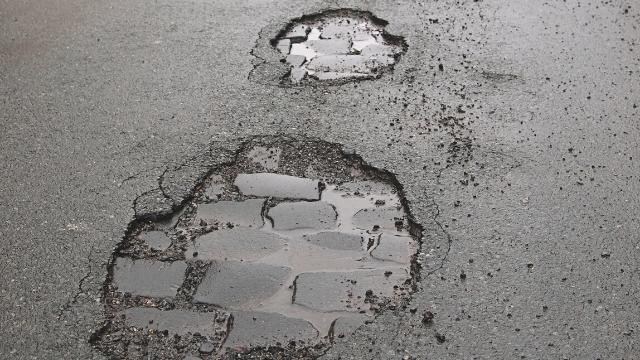When it comes to pave or seal a driveway, there are many factors to consider to make the best decision for your property. In this blog post, we will explore when is the best time to pave or seal a driveway and what factors you should take into account. Paving or sealing a driveway can be an important investment in your home, so it’s important to make sure you’re making the right decision for your needs.

What are the benefits of pave or seal a driveway?
Paving a driveway may be necessary for various reasons like preventing severe water damage or pedestrian liability on your property. While sealing a driveway can extend its life and improve its appearance, it can also make it easier to clean and can prevent staining. Sealants provide a protective barrier against the elements, while paving can make the surface more durable. The best time to pave or seal a driveway is typically in the late spring or early summer. Cleaning and maintaining your driveway regularly can also help to prolong its life. It’s essential to repair any cracks or damage as soon as possible to prevent further deterioration and higher pavement maintenance costs.

How often should you pave or seal a driveway?
Most experts recommend sealing a driveway every two to three years. However, some factors can affect how often you need to seal or pave your driveway. These include the type of pavement, the climate, the amount of traffic, and whether you have any leaks. Weather is also a factor to consider when deciding how often to pave or seal your driveway. If you live in an area with harsh winters, you may need to do it more often. Essentially, you’ll want to inspect your driveway regularly and repair any damage as soon as possible. Doing so will help to prolong its life and keep it looking its best.

Common problems that can occur with driveways?
One of the most common problems that can occur with driveways is potholes. Potholes are caused by water seeping into the pavement and then freezing. This can cause the pavement to crack and break apart. Another common problem that can occur with driveways is cracks. Cracks can be caused by a variety of factors, including weathering, poor drainage, and tree roots. Routine pavement repair can help to prevent potholes and cracks from forming. The worst possible outcome for a driveway is a complete failure. This can be caused by a variety of factors, including poor drainage, lack of maintenance, and extreme weather conditions. When this happens, the only option is to completely rebuild the driveway. We recommend having your driveway assessed by a professional and scheduling routine maintenance to avoid any severe driveway issues.

How to fix/prevent most potholes and cracks on your driveway?
To prevent potholes from forming, it is important to seal the driveway every 20-30 months or every couple of years. This will create a barrier against the elements and will help to keep the pavement intact. To prevent cracks from forming, it is important to assess your driveway every three to five years. Your professional assessment should be able to identify any areas that need repaving to help prevent the formation of cracks. Keep in mind that cracks can also be caused by tree roots. If you have trees on your property, be sure to have them regularly trimmed to prevent damage to your driveway.

What is the cheapest time to pave or seal a driveway?
The cheapest time to pave a driveway is typically in the late fall or early winter. This is because the weather is cooler and there is less demand for paving services. When paving a driveway, it is important to choose a reputable contractor. Be sure to get multiple quotes and compare prices before making your final decision.
Limitless Golden Construction is a leading driveway installation and pavement maintenance company in Westchester and Putnam County, NY. We offer a wide range of services, including paving, sealcoating, excavation, grading, and snow removal. Contact us today for a free estimate!

When should you not pave or seal a driveway?
You should not repave or seal your driveway if it is in poor condition. This includes cracks, potholes, and other damage. Repaving or sealing a driveway in poor condition can make the problem worse. You should also not repave or seal your driveway if there is severe water damage. This can cause big areas of pavement to crack and break apart on your driveway. Lastly, you should not repave or seal your driveway if it is in an area that is subject to flooding. This can wash away the pavement and leave your driveway in worse condition than it was before. When in doubt, always consult with a professional to get their opinion on whether or not you should repave or seal your driveway.

Key Takeaways:
- It is important to pave or seal your driveway every 20-30 months or every couple of years to prevent potholes and cracks from forming.
- Assess your driveway pavement by a professional every 3 to 5 years to prevent major repair costs.
- The cheapest time to pave a driveway is typically in the late fall or early winter.
- You should not repave or seal your driveway if it is in poor condition, there is severe water damage, or it is subject to flooding.
Now that you understand the importance of paving and sealing your driveway on a regular basis, we invite you to use our free paving calculator. This tool will help you determine how much it will cost to pave your driveway based on your location and the size of your driveway. Our team at Limitless Golden Construction in New York can also provide a professional assessment of your driveway every 3 to 5 years to prevent major repair costs down the road. Contact us today for more information!

It’s very helpful to know that sealing our driveway every couple of years helps prolong its lifespan. We’re replacing our house’s deck and working on our landscape, so we think it’d be wise to take a look at our driveway too, and your tips will definitely help us. My wife and I are grateful for your advice on paving or sealing a driveway based on our area’s weather and traffic.